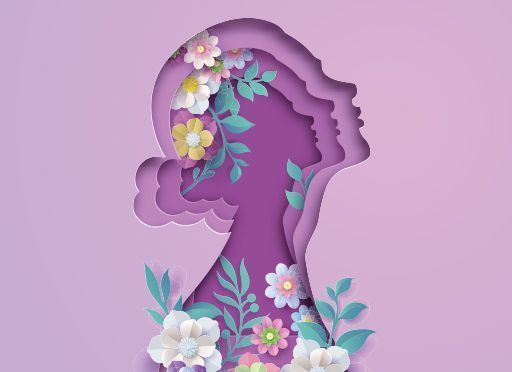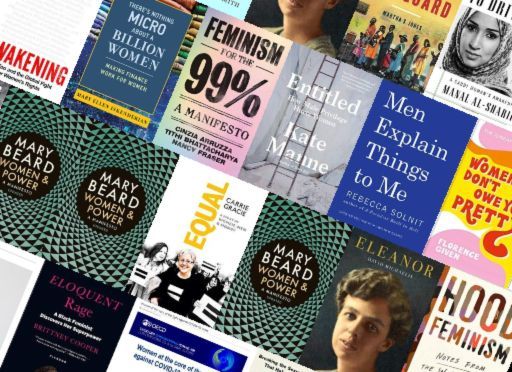Philosophy professor Kate Manne breaks down in detail the manifestations of male entitlement in America and how that entitlement oppresses and belittles women.

Oppressive Assumptions
Many men behave with a sense of entitlement that hampers women’s ability to live autonomously and pursue equal access to essentials such as health care and career opportunities. Philosophy professor Kate Manne describes entitlement as a misogynistic desire to preserve masculine power and privilege in areas men historically controlled. She combines essay-like prose with exhaustive research and political analysis to dismantle myths that justify male privilege in law enforcement, government and private life. Manne hopes today’s girls inherit a world in which men don’t block women from living healthy, fulfilling lives.
To understand misogyny, Manne suggests viewing it as a method by which society enforces patriarchal expectations and norms by threatening women and girls with gender-based hostility. People rationalize misogyny based on sexism, which is a set of ideas, assumptions and beliefs justifying men’s domination of women.
Sex Crimes
When men commit acts of misogynistic violence, such as rape, society often fails to hold them accountable. This is especially likely if the victims are from marginalized groups. When people view violence against women as the result of some misunderstanding or act of passion, they enable such behavior.
I think of misogyny as being a bit like the shock collar worn by a dog to keep them behind one of those invisible fences that proliferate in suburbia.Kate Manne
US police officers routinely avoid investigating and prosecuting sex crimes. Police fail, repeatedly, to test rape kits. Manne offers the revelation that the United States has roughly 400,000 untested rape kits, 86% of which belong to women and girls of color.
Women’s Pain
Medical practitioners often treat women’s pain – especially Black women’s pain – less seriously than men’s pain and often dismiss female patients as “hysterical.”
Manne cites researchers who found that health care practitioners were more likely to give women minor tranquilizers for pain. Doctors prescribed boys complaining of pain more codeine than girls with similar complaints. Physicians were more likely to diagnose female patients complaining of chronic pain with “histrionic disorder”; they viewed women’s pain complaints as stemming from being emotional or seeking attention.
Due to gender biases, women do not receive the same level of health care as men. Dangerous unscientific assumptions that men stoically endure pain – while women overreport it – fuel this behavior. The medical world has long treated the male body, Manne details, as the default for care and has long failed to fund adequate research into female health conditions.
Some anti-abortion activists rely on medical misinformation to advocate against abortion. Politicians who say they want to restrict abortion to preserve life often don’t protect human life in other significant ways. For example, many have done little to create support systems for children living in poverty or to address alarmingly high maternal mortality rates for white women in the United States and even higher rates for Black, Alaska Native and Native American women.
Equal Rest Time
In the 1980s, sociologist Arlie Russell Hochschild coined the phrase “second shift” to describe the burden of domestic and child-rearing labor that people expect from women in heterosexual relationships. Women still do the bulk of household work, even when both partners work full time.
New mothers perform more housework than new fathers. Worldwide, women perform up to 10 times as much unpaid domestic and care labor as men. The estimated value of this domestic labor is $10 trillion per year. Men and women tend to do this work equally only when a woman works full time and her partner is unemployed.
Emotional labor encompasses, among other things, the keeping track and anticipatory work that so often falls to women: knowing what is where, who needs what, the grocery list, the family’s budget, the family calendar, and so on—not to mention packing endless bags, from diaper bags to suitcases.Kate Manne
Men and women perceive the balance of labor in their homes differently. Women tend to perform more emotional labor than men in managing the logistics of domestic care. Many unemployed American men choose unemployment over available paid work in various kinds of caregiving, which society views as a feminine occupation.
Mansplaining and Gaslighting
Mansplaining means men taking on the role of an expert in a conversation and offering authoritative explanations. Often, Manne notes, the men are necessarily expert in the topics they explain, and the women listening know more than they do. Women often remain silent in the face of this aggression because society punishes them for revealing their expertise, especially when they are more expert than a man.
If the truth is not our property, then neither is authority.Kate Manne
Gaslighting is one of the most oppressive forms of this kind of entitlement: when men make women who disagree with them question their own views, rationality or sanity. Men who are acting with malice may gaslight women slowly, over time. When women don’t agree with them, gaslighters may become threatening or angry.
Superhuman Perfection
People assume that in traditionally male-dominated areas, such as politics, men will perform more competently than women.
Given the abundance of information about any person in the public eye, it is not too difficult to find a way to portray a prominent woman as having been, at some point in time, insufficiently caring, considerate, or cognizant of others. Kate Manne
People often hold women in power to higher standards than men, expect them to put the communal good before their own agenda and punish them more harshly for forgivable mistakes. The public demands superhuman perfection from women in power. Those demands expose a rampant sexist belief that these women, unlike their male counterparts, lack the entitlement to make mistakes.
A Fervent Chronicle
Manne writes with journalistic clarity and backs her arguments with a disheartening avalanche of convincing real-world examples and research studies. Her sense of inquiry matches her sense of injustice as Manne presents a case-by-case, point-by-point portrait of exactly how male entitlement and sexism pervade society, the professions and feminine self-regard. While politically neutral, getAbstract recommends this reasoned overview as an excellent primer or textbook for men and women seeking to understand these forces.
Kate Manne also wrote Down Girl. Other solid books on women’s workplace issues include Men Explain Things to Me by Rebecca Solnit, Angry White Men by Michael Kimmel and A Woman’s Place by Kylie Cheung.










